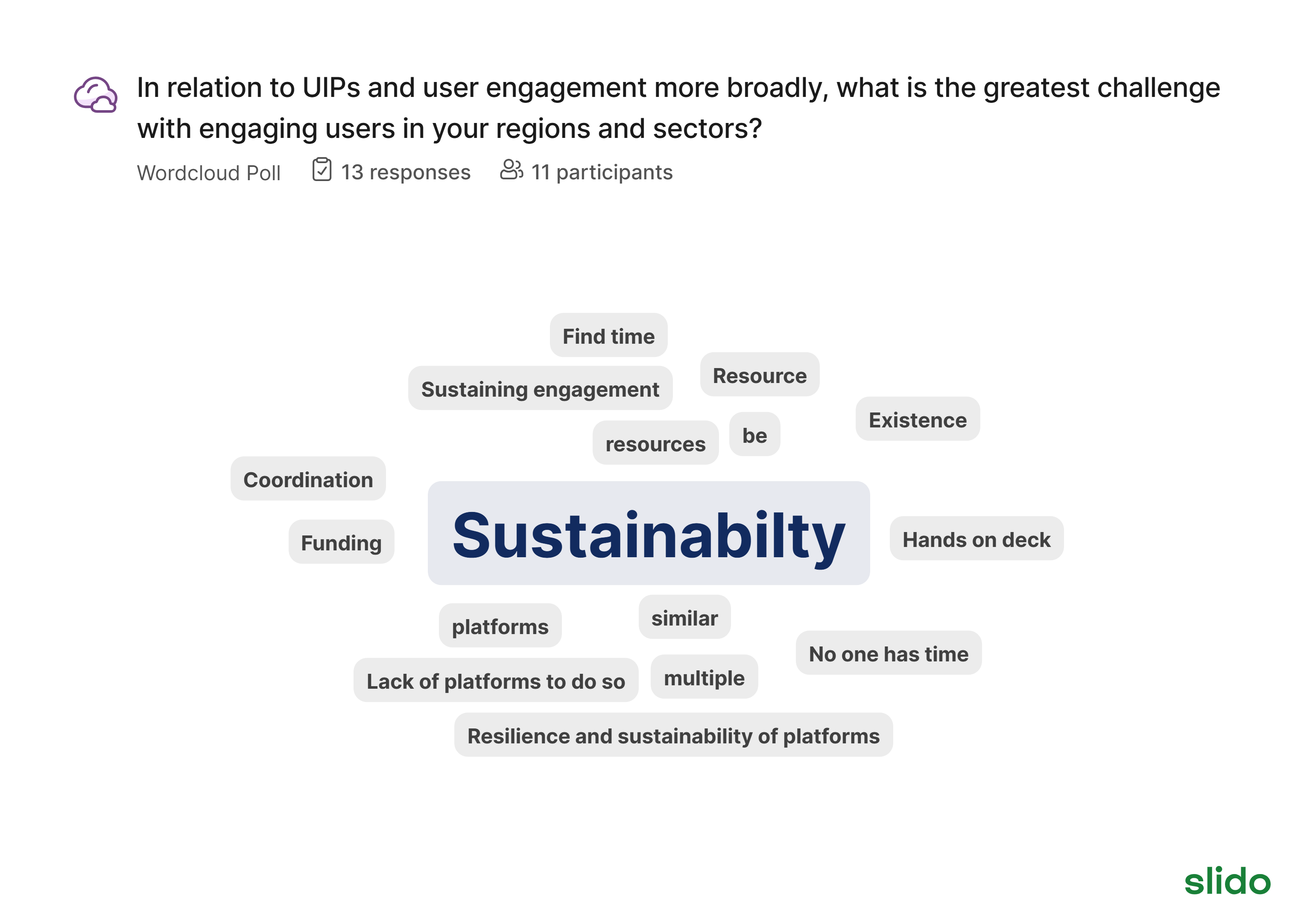Geneva - 3 June 2025
The World Meteorological Organization (WMO) held a focused information session on User Interface Platforms (UIPs) and National and Regional Frameworks for Climate Services (NFCS and RFCS), bringing together regional climate institutions, technical experts, and development partners to explore strategies for strengthening climate services through structured user engagement.
The session provided a platform to share experiences, highlight ongoing work, and introduce key guidance materials. In her opening remarks, Hlobsile Sikhosana emphasized the urgency of making climate services more actionable, inclusive, and co-produced.
“We must build services based on mutual trust, sectoral relevance, and user feedback—especially in a changing climate,” she said.
Sebastian Grey of WMO presented the newly developed UIP guidelines, emphasizing that user interface platforms are not limited to digital tools.
“A UIP can be a stakeholder forum, a WhatsApp group, or a technical working group. What matters is consistent, inclusive engagement and clear structure,” he noted.
Key examples on user engagement at different levels were shared:
- Pierre H. Kamsu (ACMAD) highlighted the establishment of continental UIPs across sectors like agriculture, health, and disaster risk reduction, supported under the CLIMSA programme. These platforms aim to bridge the gap between climate service providers and end users by enabling structured, sector-specific dialogue.
- Calistus Wachana (ICPAC) presented experiences from Kenya and Uganda, where Participatory Scenario Planning (PSP) and National Climate Outlook Forums are being used to support decision-making at the local level, incorporating both scientific forecasts and community knowledge.
Key information and examples on NFCS and RFCS were shared:
Nicola Golding (UK Met Office) then outlined the updated WMO guidelines for NFCS and RFCS, stressing the importance of national ownership, context-specific approaches, and continuous review. She mentioned the various new resources in the new guidelines, like tips on integrating gender, equity, and social inclusion (GESI).
“Each framework should be tailored to a country’s needs, but rooted in clear coordination and stakeholder engagement,” she noted.
- Adrian Trotman (CIMH) showcased the Caribbean region’s approach to the regional coordination of climate services, emphasizing the role of the Consortium of Regional Sectoral Early Warning Information Systems across Climate Timescales (UE-SACs). This coordination mechanism brings together regional institutions in agriculture, health, water, tourism, and disaster risk reduction to jointly produce and deliver integrated early warning and climate services.
The Global Water Partnership (GWP), which is supporting the development of UIP Help Desks in the RCCs, also participated in the session. These Help Desks aim to support and strengthen user engagement by enabling RCCs to better manage different types of requests. Participants reflected on common challenges—including limited financial and human resources, reaching the most vulnerable users, and sustaining engagement.
The session concluded with a call to foster strong feedback loops between national and regional institutions and ensuring that climate services are not only scientifically robust but also user-driven, trusted, and sustainably supported.

Do you have experience with platforms for user engagement that you would like to share? Kindly consider responding to this short survey.
For any questions, please contact the team:
Sebastian Grey (Scientific Officer) – sgrey@wmo.int | Saeed Vazifehkhah (Scientific Officer) – svazifehkhah@wmo.int | Nakiete Msemo (Associate Scientific Officer) – nmsemo@wmo.int